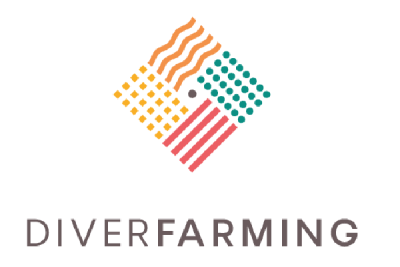The European ‘Communities of Practitioners’ are born around crop diversification
The objective of research is to contribute to the development of society. In this context, the research being carried out by the European Diverfarming project, financed by the European Commission through its H2020 programme, makes the leap from laboratory to the field to serve as a tool for the agricultural communities when obtaining environmental and economic benefits in their lands.
With the creation of the ‘Diverfarming Communities of Practitioners’ a network of people appears who put into practice the diversifications set out by the project. The map of European diversification created consists of 17 members who carry out these techniques. There are 10 Spanish agricultural farmers (from areas of Murcia, Zaragoza and Córdoba), one Danish farm, another one from Italy and five from Finland. In the Spanish farms within the ‘Diverfarming Communities of Practitioners’ they are carrying out crop rotations, double harvests and associated crops. In Spain, cereals and legumes are combined with woody crops such as almonds, citrus and olives, depending on the region, whilst in the north of Europe the most common diversifications involve cereals and legumes with vegetables.
To disseminate the economic and environmental benefits that crop diversification and the use of sustainable management practices implies, the teams from the six countries where the project has experimental fields held seminars with the agricultural community of each region throughout 2019. Seminars were held in Murcia, Zaragoza, Córdoba (Spain); Lombardía (Italy); Groningen (Netherlands); Kanzem (Germany); Jokionen (Finland); and in Hungarian wine-growing regions such as Villany. These meetings gave those attending the opportunity to visit the trial fields and count on technical advice from the Diverfarming team when it came to implanting their crops, or to resolve doubts on the practices.
All the information on the project and the forms to register in the ‘Diverfarming Communities of Practitioners’ to diversify the land or to share diversification experiences are available in the web 'Be a Diverfarmer'
Diverfarming is a project financed by the Horizon 2020 Programme of the European Commission, within the challenge of “Food Security, Sustainable Agriculture and Forestry, Marine, Maritime and Inland Water Research and the Bioeconomy”, which counts on the participation of the Universities of Cartagena and Córdoba (Spain), Tuscia (Italy), Exeter and Portsmouth (United Kingdom), Wageningen (Netherlands), Trier (Germany), Pecs (Hungary) and ETH Zurich (Switzerland), the research centres Consiglio per la ricerca in agricoltura e l'analisi dell'economia agraria (Italy), the Consejo Superior de Investigaciones Científicas (Spain) and the Natural Resources Institute LUKE (Finland), the agrarian organisation ASAJA, and the companies Casalasco and Barilla (Italy), Arento, LogísticaDFM and Industrias David (Spain), Nieuw Bromo Van Tilburg and Ekoboerdeij de Lingehof (Netherlands), Weingut Dr. Frey (Germany), Nedel-Market KFT and Gere (Hungary) and Paavolan Kotijuustola and Polven Juustola (Finland).

